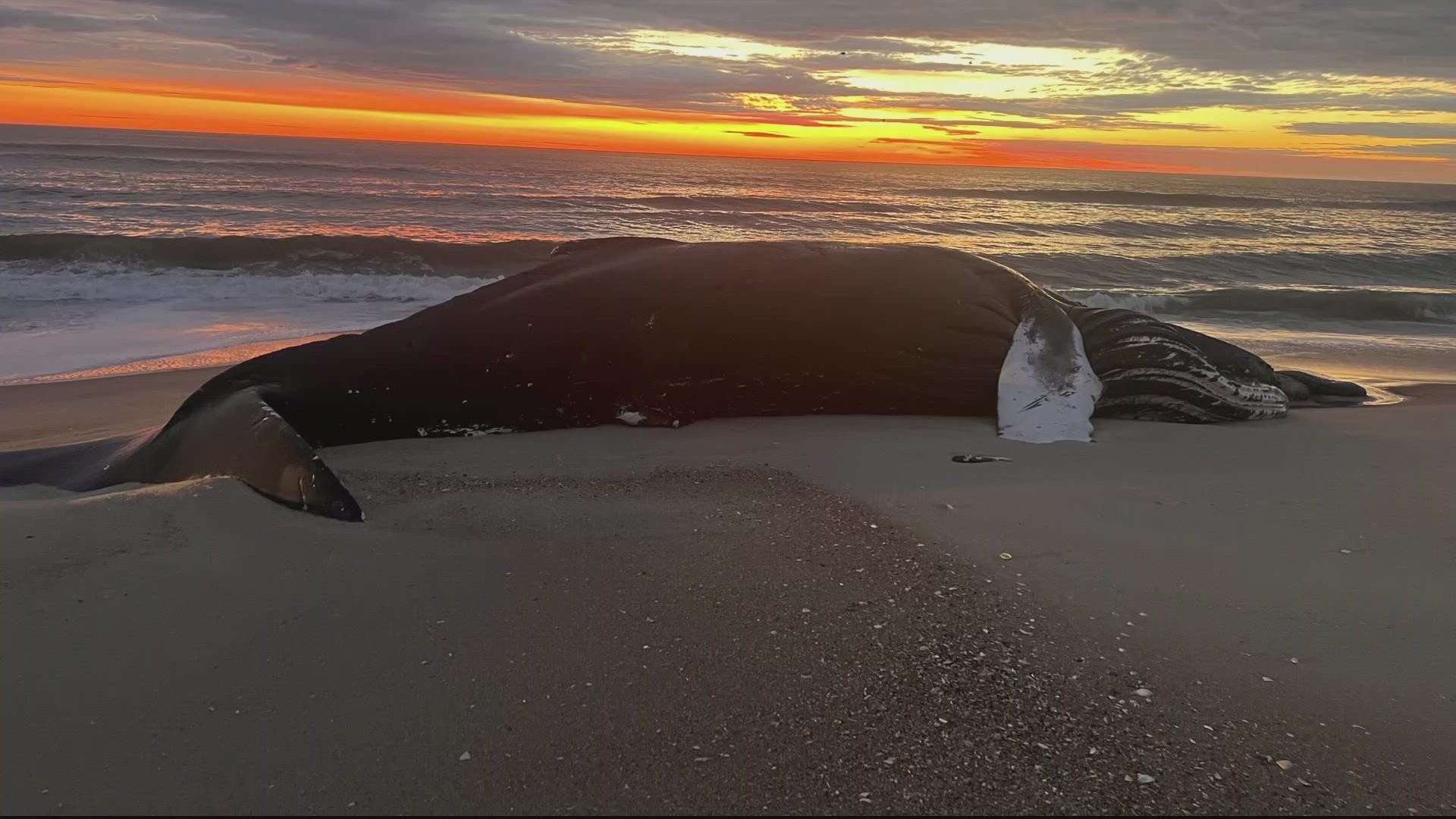OCEAN CITY, Maryland — A 20-foot humpback whale was found dead on the beach at Assateague Island early Monday morning. The unusual event is further inflaming an issue that’s pitted one environmental group against another, in the growing epidemic of whale deaths on Atlantic beaches.
Opponents of offshore wind energy development have been quick to blame the industry, which is currently surveying the ocean bottom with technologies like sonar. But supporters of wind energy accuse their opponents of spreading misinformation to score political points.
The National Park Service says an investigation into what killed the whale on Assateague was launched Tuesday. In a written statement, NPS said that a team of scientists did a necropsy on the beach to try and figure out what killed the whale.
"At this time there are no obvious signs to the cause of death," the statement said.
The discovery on the beach, made by park visitors Monday, brings the epidemic of dead whales on Atlantic Beaches from New York to New Jersey up to eight since Dec. 9. Responders included the Maryland Department of Natural Resources' Stranding Response Program (MD-DNR) in consultation with NOAA (National Oceanic and Atmospheric Association) and other agencies such as the National Aquarium and Smithsonian Institution, the park service said.
Beach visitor Rich Levine posted photos he took to Twitter and estimated that the whale was the length of a school bus.
Supporters of offshore wind held a press conference in Atlantic City, New Jersey Tuesday to respond to recent claims by wind opponents that the industry may be to blame for the whale deaths. New Jersey's League of Conservation Voters said it aimed to “dispel false narratives about offshore wind farms and to call on wind farm opponents and politicians to stop using these tragedies to score political points.”
NJLCV Public Policy Director Allison McLeod said climate change, not wind turbine development, is the greatest threat to whales.
But Clean Ocean Action, a New Jersey-based conservation group, is calling for a halt to wind development activities offshore, which includes the use of sonar that could be disruptive to whales, until the effect on the animals can be documented.
"It's a massive industrialization from Massachusetts to South Carolina and it happened very, very rapidly," Clean Ocean Action Executive Director Cindy Zipf said.
One company, SkipJack Wind, says it has done survey work off Delaware and Maryland beaches in preparation for future turbine development. Skipjack Wind's survey work began and ended nearly a year ago, in Spring 2022. They have not conducted offshore survey work since then, according to company spokesman Henry Fawell.
The National Oceanographic and Atmospheric Administration has drawn no conclusions about the recent spike in whale deaths. The agency reports that unusual whale deaths have been happening on the Atlantic coast since 2016.
NOAA points to evidence of ship collisions in half the cases where post mortem studies could be performed.
Rep. Jeff Van Drew (R- New Jersey) is calling for hearings to learn more.

